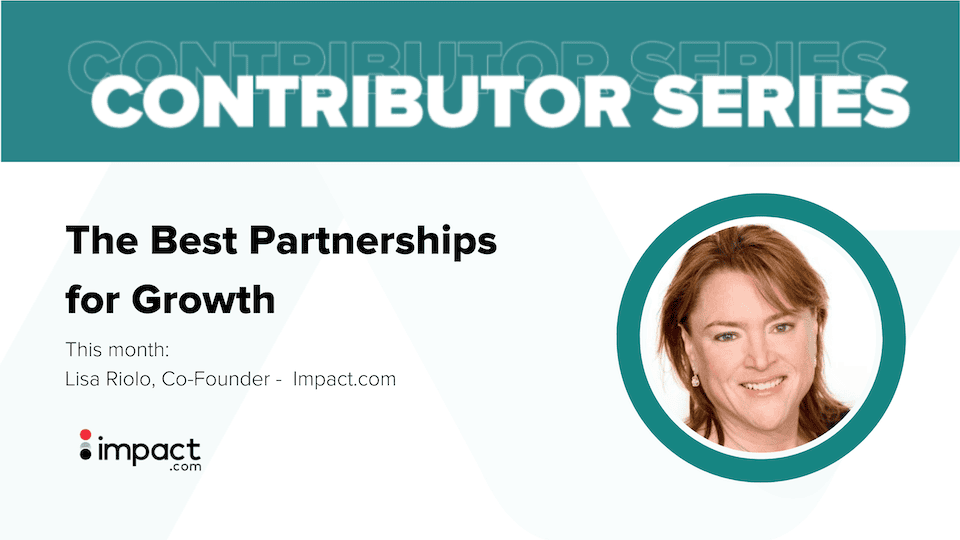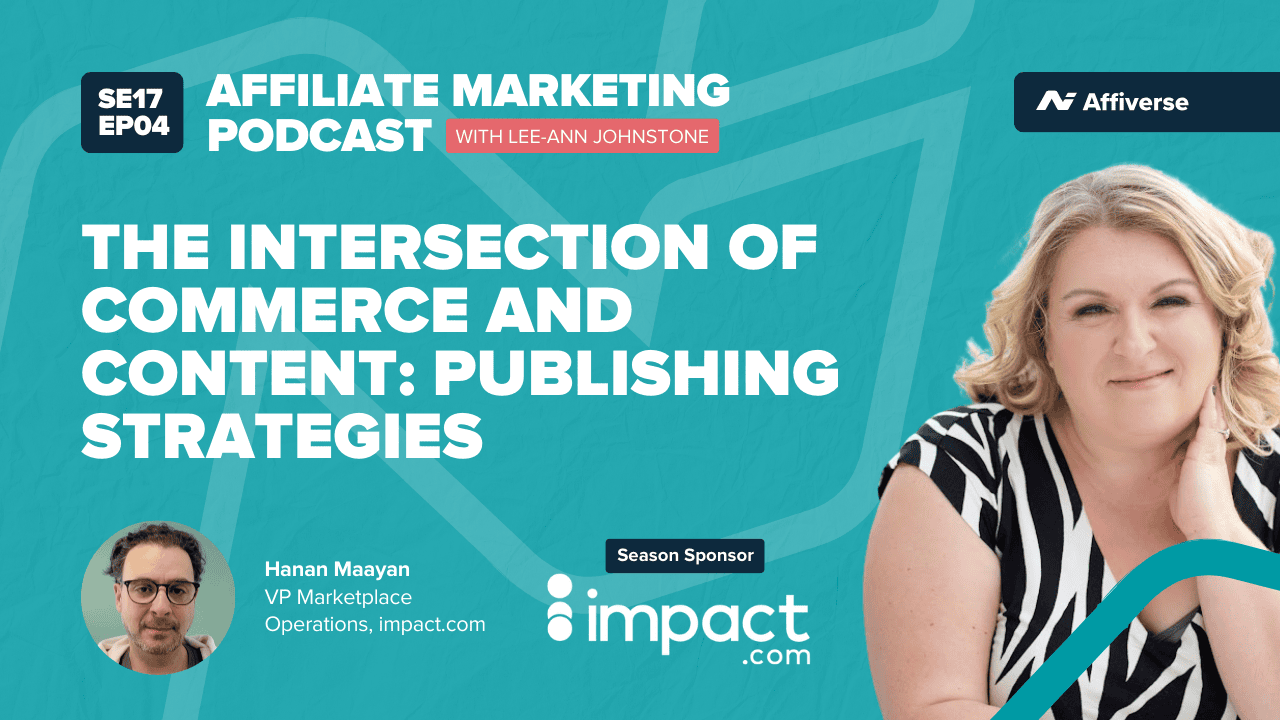This month, Lisa Riolo writes for us. In addition to her role as Co-Founder and Executive Advisor at impact.com Lisa offers leadership development services through her consulting business. You can connect with her on LinkedIn or at lisariolo.com
Words: Lisa Riolo, Co-Founder & Executive Advisor, impact.com
There’s plenty of information out there on how to recruit referral partners, influencers and affiliates. With so many kinds of partners to develop, your biggest challenge may not be how to build these high-value relationships, but which ones.
Ultimately, your success centres around your ability to perform; in the role you have, and in the role(s) you envision for your future. And the fastest path to achieving your goals is often through partnerships.
The Importance of Mentorship
Your best relationships will come from a strong professional network that you cultivate with the intent of your own development.
Within your network – there are typically individuals that provide guidance and advice you might not receive from a manager or supervisor. These relationships often have a significant impact on your career development and deserve the special label of ‘mentors.’
Mentorships trace back to ancient history, gaining strong popularity in business since the mid-twentieth century. But is the value of these relationships diminishing?
I recently heard a podcast guest tell her host that many young professionals question the value of mentors, especially in terms of facilitating their career progression. The woman, a research oriented professor, left the impression that the incoming generation may be thinking of mentorship as an outdated concept.
Objections to these arrangements range from communication styles and obsolete thinking to high-pressure time constraints that make on-demand “information” super attractive.
People are spending time generating ChatGPT prompts vs. Slacking a senior staff member. Why wait minutes for a human response when the bots answer in seconds?
In today’s time sensitive workplace: close-enough beats deep expertise.
The scepticism is real.
GenZ faces an unpredictable and unstable workscape. Sometimes, new job descriptions don’t even last the span of the hiring post. Tasks and processes are continually overhauled, automated, optimised and replaced. It’s fair to ask: how could an Xer or Millennial offer up relevant information that applies today? Especially when expectations in the office evolve so fast and innovation accelerates systems in unexpected ways. What once worked effectively, probably doesn’t anymore.
Plus, many organisations are laying off staff as frequently as their regular planning cycles. When companies reduce staff and retain lesser-paid employees that are competent (but maybe not proficient), institutional knowledge erodes.
GenZ and younger millennials may have the stronger side of the debate.
But as the (very) old saying goes: Don’t throw the baby out with the bathwater…
Instead, maybe it’s time for the dynamics in these relationships to level up.
Old Way: It’s part of business culture
In many organisations, it is assumed that mentoring exists within the company. Larger companies may have (or once had) staff development programs – with mentorship concepts built into training courses. Early phase or smaller companies with basic learning programs hope leaders will mentor less experienced staff as part of their daily activities. In general, managers are typically expected to include “mentorship” in their 1:1 agendas with staff.
If professionals aren’t proactively engaging in mentorships – achieving the goals of higher productivity, employee engagement and improved skill proficiency are unpredictable.
New Way: Self-directed Mentees
We shouldn’t just assume managers, who were likely promoted for performing well as an individual contributor, know how to effectively help and coach others.
Neither should we expect potential mentors to bear the burden of defining and developing an effective framework for a mentoring partnership. While both parties should benefit from the relationship – the primary purpose for a mentee is to receive guidance and assistance for growth. Therefore, the mentee should oversee and direct their professional development.
Since the mentees don’t know what they don’t know… it’s important they seek broader perspectives than a Hey Google or Siri inquiry might offer. Ideally, a mentee develops several mentors in their professional network. And by cultivating partnerships with diversely skilled, seasoned professionals the overall benefits may be exponential.
If we think of the roles in a mentorship as one person driving and the other navigating – it’s important for the “driver” to clearly state the “destination” and identify the key milestones for the trip. The driver outlines the “roadmap” and takes on the planning logistics. This approach keeps the primary focus on achieving the mentee’s goals and helps the “navigator” to orient themselves to the driver’s point-of-view.
Best Way: Learning from each other
We tend to think of teaching-based relationships as one way – where the mentors help the protegees. Not the other way around.
In my experience, the greatest benefit of a mentorship is that both partners are gaining important knowledge. As a mentor, I love learning about emerging trends and gaining new perspectives. I get to use new technology, hear new phrases/slang and discover new patterns that I hadn’t seen previously.
Taking the approach that mentorships can and should feature mutual benefits also opens the door to partnering with peers. Two-way mentoring means each party gets to teach and to learn. The key to having a peer-to-peer or two-way mentorship is establishing a joint understanding of expectations. This involves:
-
- Clearly stating and regularly reviewing goals and intended outcomes from your time together
- Be consistent and respectful of scheduled communication
- Provide each other feedback and make adjustments as needed
- Recognise the importance of reciprocity and cultivate mutual value with agenda topics relevant to you both
Mentorship provides professionals with pivotal opportunities for growth. Both participants gain insight, guidance and support – all crucial for navigating the complexities of today’s workplaces. By understanding its potential value, and actively engaging in the relationship, professionals pave the way for successful growth.
Would you like to be featured as a Guest Contributor with Affiverse?
This content has been produced for Affiverse by a contributor and expresses their own views, in their own words. If you would like to feature as a contributor on Affiverse platforms, please email [email protected] with your article suggestion.
Are you registered for AMLeaders Miami 2024?
Are you ready to unlock your leadership potential, expand your horizons, and connect with a community of like-minded individuals? Join us on April 16 at AMLeaders 2024.
Book your ticket here



















